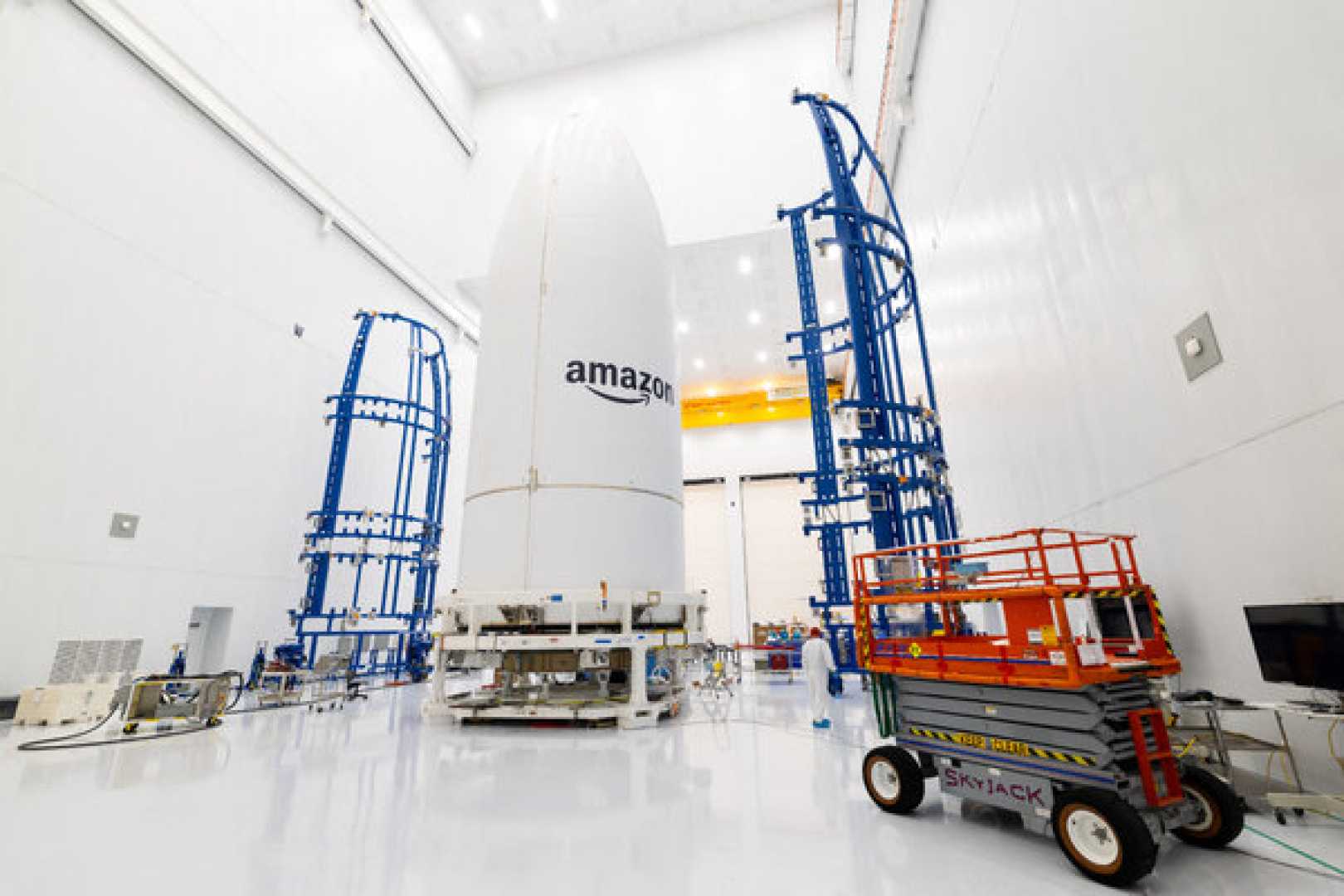Tech
Amazon Launches Project Kuiper Satellites Into Space

CAPE CANAVERAL, Florida (AP) — Amazon launched its first batch of Project Kuiper satellites on Monday evening, marking a significant step in the tech giant’s efforts to compete in the satellite internet market dominated by SpaceX’s Starlink. The United Launch Alliance Atlas V rocket lifted off from Cape Canaveral Space Force Station shortly after 7 p.m. ET, carrying 27 Kuiper satellites into low-Earth orbit.
This launch represents the beginning of a plan to deploy a massive constellation of satellites aimed at providing high-speed internet to underserved areas worldwide. Amazon’s Project Kuiper is seen as a direct competitor to SpaceX’s Starlink, which has already established a robust presence with over 8,000 satellites in orbit.
“We had a nice smooth countdown, beautiful weather, beautiful liftoff,” said Caleb Weiss, a systems engineer at ULA, during the livestream of the launch. “Atlas V is on its way to orbit to take those 27 Kuiper satellites, put them on their way and really start this new era in internet connectivity.”
The Kuiper system is designed to consist of approximately 3,200 satellites orbiting about 280 miles above Earth. This altitude allows for faster data transmission compared to traditional satellites, which operate at geosynchronous orbits over 22,000 miles away. The launch is the first of many required to meet a Federal Communications Commission deadline, mandating that Amazon have half of its satellite constellation operational by July 2026.
Despite this launch, Amazon faces skepticism from analysts about its ability to compete effectively with Starlink. “Kuiper is going to have a long way to go to catch up to be able to serve a significant part of the market,” Craig Moffett, a senior managing director at MoffettNathanson, told CNN. He expressed concerns that Amazon might be too late to enter the market.
Funding for Project Kuiper is considerable, with an estimated $10 billion required for building the satellite network. Amazon is also expected to incur annual operational losses of between $1 billion and $2 billion, according to financial analysts.
Rajeev Badyal, vice president of Project Kuiper at Amazon, stated, “No matter how the mission unfolds, this is just the start of our journey, and we have all the pieces in place to learn and adapt as we prepare to launch again and again over the coming years.”
With high expectations for service rollout, Amazon plans to begin customer trials later this year. The company hopes to leverage this new capability to enhance its Amazon Web Services and provide connectivity to its logistics fleet.












